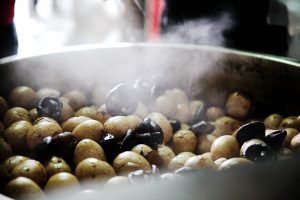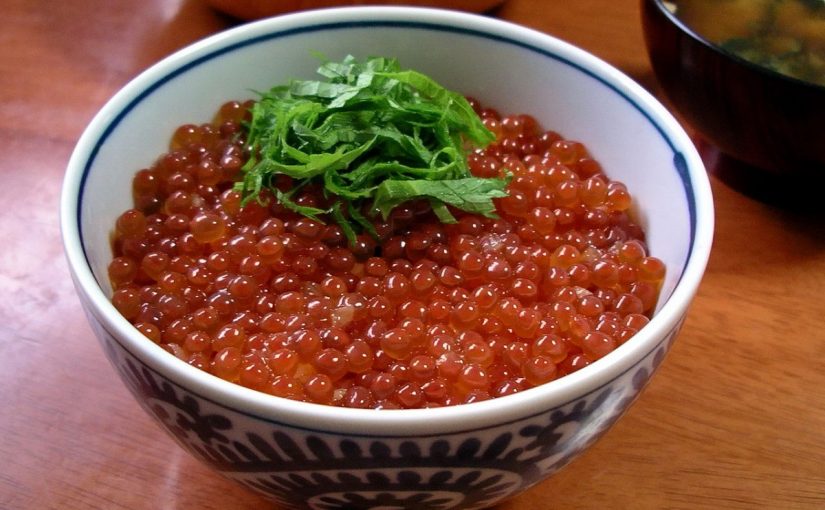
For this week’s tasting, we sampled different eggs before knowing their origins and again after, and contemplated the effect of knowledge and trauma on taste. We tried a plain egg, a tea egg, an egg prepared with beet juice and sugar, and salmon roe prepared in the traditional Japanese fashion. For me, learning the origin of each egg didn’t particularly impact their flavor. For example, learning that the tea egg was made with tea from Sakuma Bros. farms reminded me of my dislike of their business but didn’t effect the flavor. However, as Lindsey told us that eating salmon roe was potentially putting salmon populations in jeopardy, I felt guilty and took pause before consuming more, though I have to admit that I still finished my portion. Salmon roe is one of my favorite foods, but perhaps I will eat it in more moderation going forward.
So far, I have not found learned history of a food to impact its appeal, though as we continue through the program I may find that changes. I don’t think that it will though – I am, after all, the kid whose parents brought her to Stone Barns at the age of six and, after learning the history of the restaurant, still demanded unequivocally to have salt added to her chicken dumpling soup because it was too bland. Being a foodie and a person interested in food’s origins has never kept me from speaking my mind, and acting accordingly.
